5 Signs Your Storage Drive is About to Fail
Information technology could be your gaming pride and joy, or it could exist your essential kit for school. It might simply be a mundane tool for your chore. Whatever it'southward used for, computers are expected to piece of work without problems: fire them upward and away you get. Hah, non and so fast... similar all electronic devices, PCs don't last forever, and the parts within them will eventually neglect.
While it's relatively easy to replace a broken device, the aforementioned tin't be said for the data stored in your machine. Virtually modern PCs rely on solid storage, which is dandy news because SSDs are more durable than HDDs. SSDs don't have moving parts and they can withstand accidental drops and other shocks and vibrations in laptops better than HDDs e'er could. Notwithstanding, SSDs can fail, too, as do other forms of wink retention.
Here are 5 signs that you should continue an center out for (or an ear), warning you that the drive storing your documents is nearing its end.
#1 - That doesn't sound right
Mod storage drives are manufactured to very high tolerances, especially hard disk drives (HDDs). Despite having platters that rotate at thousands of rpm and arms that moving-picture show back and forth in milliseconds, today's HDDs are designed to be near silent in their operation.
Y'all might be able to hear faint whirring and clicking equally the bulldoze is working, but that'southward all -- so anything louder than that, is a sign that things are not well (or that information technology's just an onetime pattern). And if you hear any high-pitched metallic noises, loud or otherwise, so the drive will probably be damaged inside.
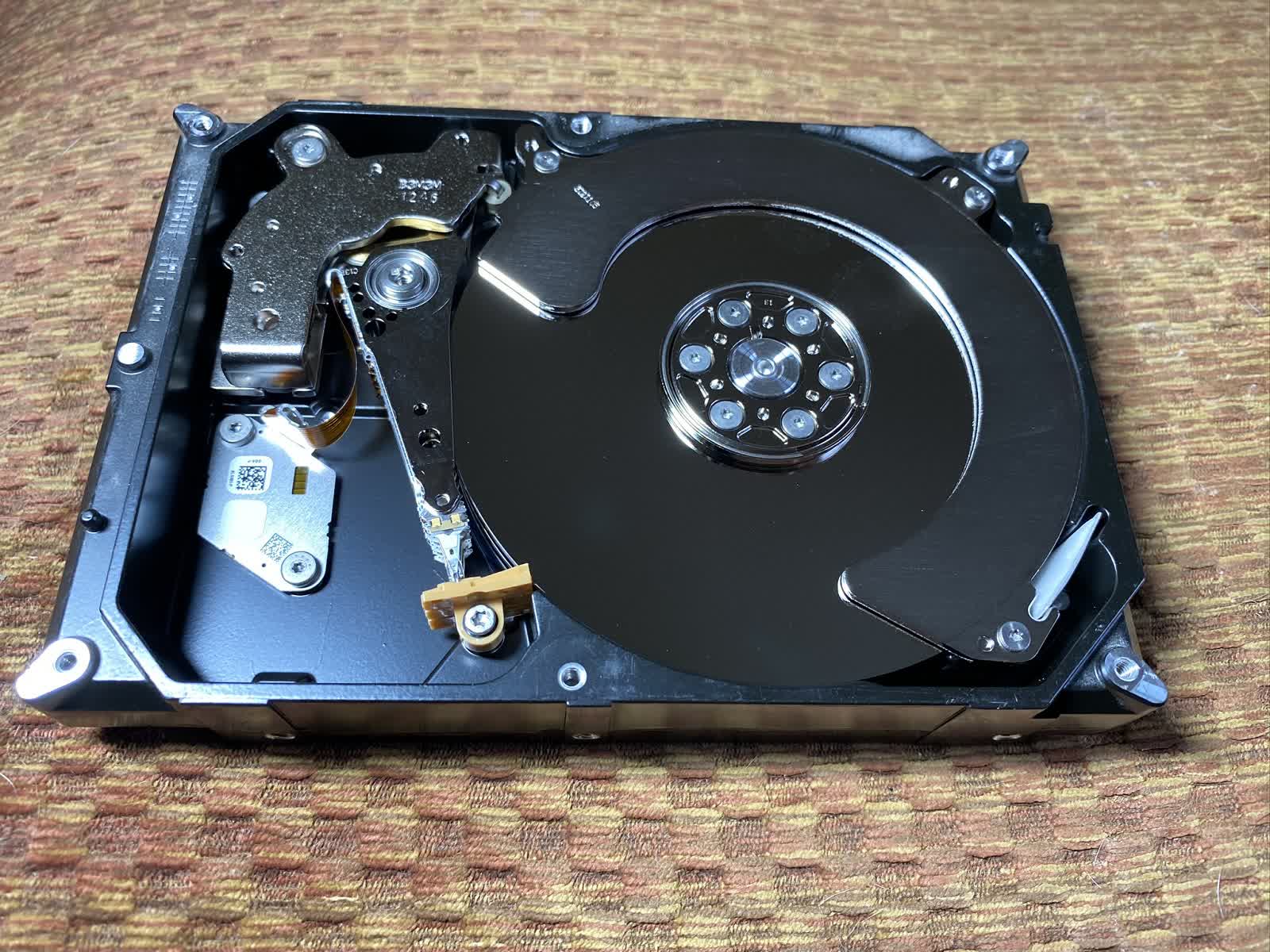
The guts of a modern HDD
Don't ignore such signs: the drive may seem to be operation perfectly well, but it'due south only a matter of time earlier it volition fail outright. In that location'southward nothing you can exercise about it, other than fill-in all of the of import data on it, equally soon as possible, and so replace the drive with a new i.
Optical storage drives, such as DVD-ROM or Blu-ray disc drives, are a lot noisier than HDDs, when they're working -- you should definitely hear something when it's spinning the disc, just this should but be the whine of the electric motors and whoosh of the air, beingness moved by the disc.
But since they're congenital with looser tolerances than hard disk drive drives, they will wear out quicker (this is counterbalanced by the fact that they're non used very often). Classic signs to listen out for are loud clicks, buzzing sounds, or the storage disc merely constantly spinning up and downward.
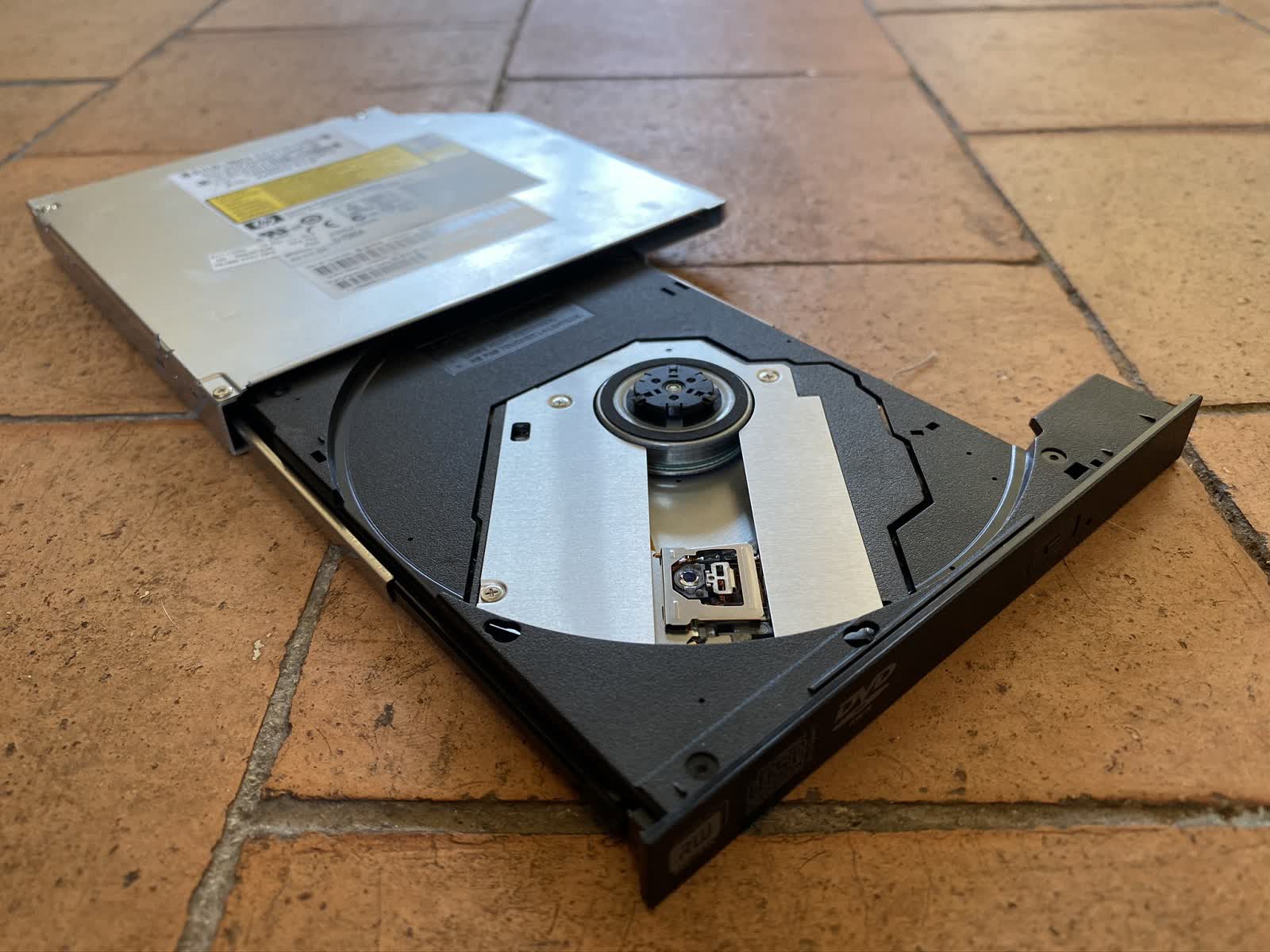
Fortunately, equally data is stored on a removable storage medium, a noisy bulldoze shouldn't crusade any information losses. That said, with continued utilize in this state, the drive could fail in such a way equally to impairment the disc. Every bit with HDDs, should your optical storage bulldoze start making loud or odd sounds, don't ignore it -- supervene upon the unit as soon as you can.
Of class, not all storage systems incorporate mechanical, moving parts. Devices that use flash memory, such as SD cards, USB memory sticks, and solid state drives (SSDs), are but a collection of chips on a excursion lath. Needless to say, y'all shouldn't hear anything from these.
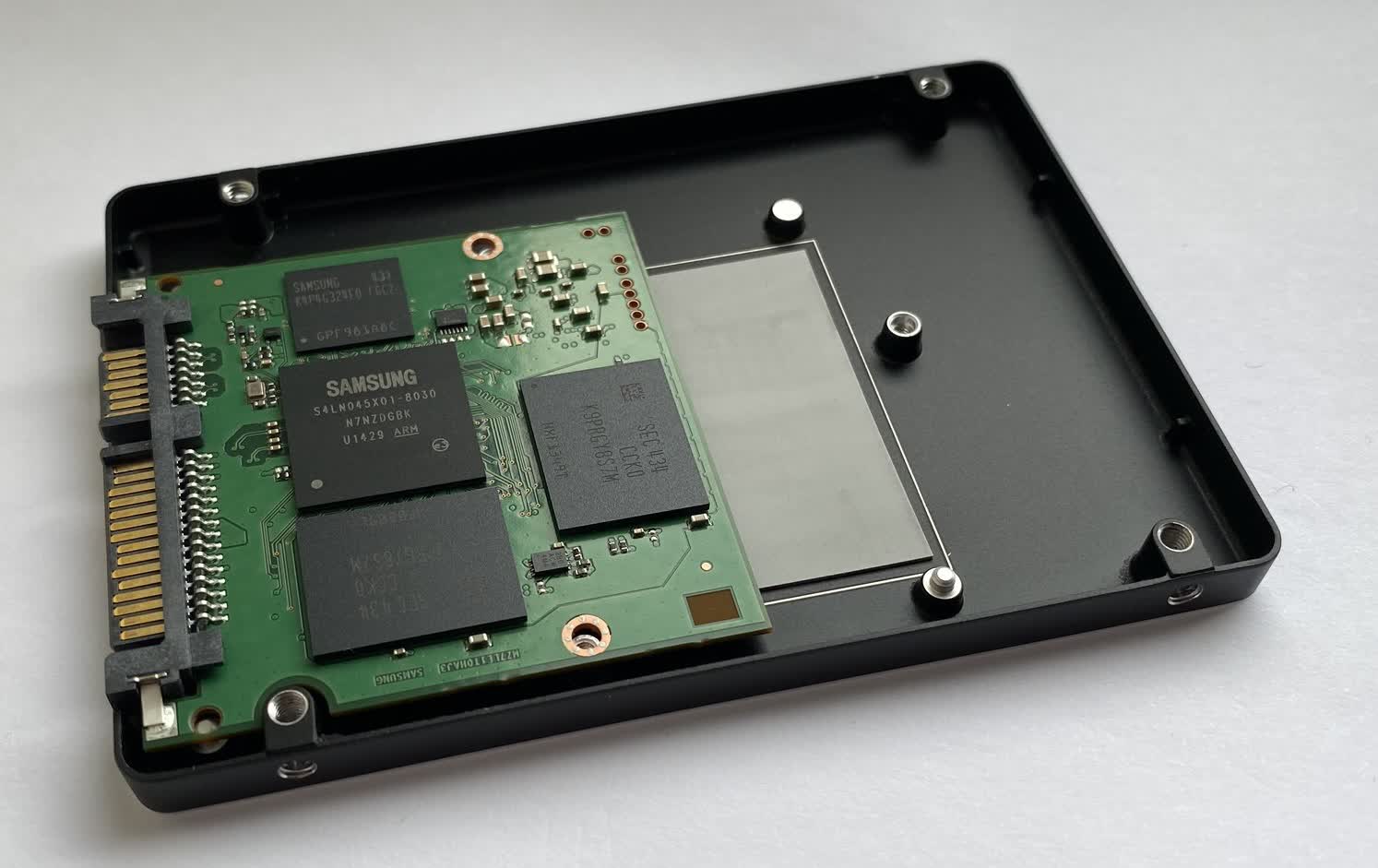
Nothing here should exist making a sound!
So if your old SSD is making any kind of noise, information technology'southward more than likely to be some other role in the computer that's doing information technology. Either that, or yous've got a small pest problem inside your figurer!
Whatever storage drives you have in your organization, y'all should never ignore any unusual sounds coming from information technology -- it could well be electrical racket or a fan that's seen better days, but if information technology'due south not, and then don't delay in tackling the issue. Backup the data that'south on it and replace information technology every bit soon as you can.
#two - Where'southward my data gone?
And speaking of keeping data safe, another classic sign that your storage bulldoze is failing is when a file or several files have just gone missing. Information isn't stored as a continuous stream of bits: instead, it's laid out in a drove of modest blocks of information.
These blocks may be physically next to each other in the drive'due south medium or they could exist scattered nigh. All it takes is for i of these blocks to be damaged, and those precious few bits will exist lost for adept. And when you go looking for the file, the computer's operating organization volition then try to find all of the blocks that make upward the file.
Without the total prepare of data, the file volition be incomplete, and the operating system may study it equally being corrupt or country that it could not find information technology at all. NAND wink physically wears abroad every time a block of data is written to or erased from the drive, and after and then many write/erase cycles, the block will cease to function.
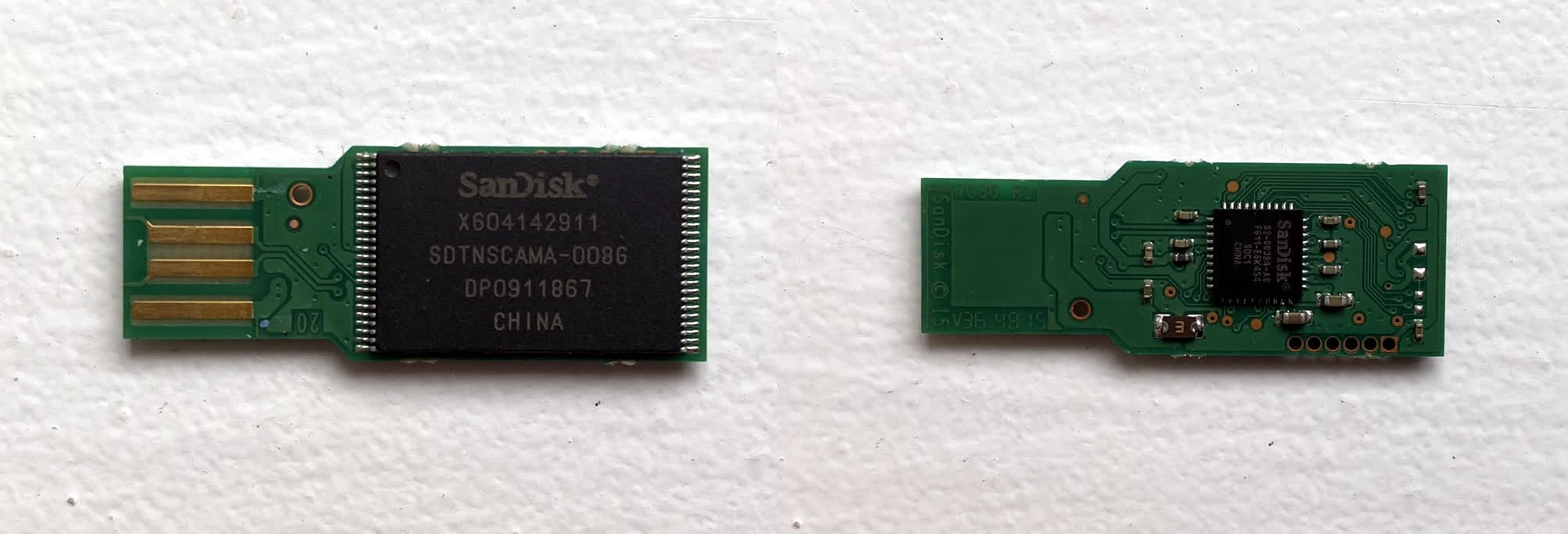
Having only one or 2 NAND fries, USB memory sticks can't offer much wear protection
SSD manufacturers employ a wealth of tricks (such as overprovisioning and habiliment levelling) to minimize this trouble, but they vary in terms of effectiveness. USB memory sticks typically take a much shorter lifespan than SSDs, so you should await them to fail without much alarm.
And so if a drive does start to lose the odd file here and there, you should consider replacing it quite soon -- depending on how one-time the drive is, the demand to practise this might not exist every bit urgent as with a screeching HDD, simply don't ignore the faults. Once again, backup any vital data that'southward stored on them. Oh, and you should never use a USB retentivity stick as a critical backup device! Stick to HDDs and deject storage for this job.
#3 - Boy, this is taking its time...
While not as immediately obvious as a drive screaming its death throes from the bowels of your estimator, a sudden change in overall performance tin can be a sign that your storage drive declining. PC hardware like CPUs, RAM or GPUs exercise not go slower over time. Besides the possibility of cooling fans malfunctioning and having the chips throttling because of that, hardware should perform the same. On the software side though, that'southward where things tin can accept a sour turn due to an aggregating of data, more programs loading on the background, and the operating system getting bogged down afterward years of updates.
But if the machine was working away happily ane day, and and then suddenly taking a very long time to boot upward or access files, there'south something clearly amiss. HDDs eventually do fail and SSDs can fail, also, and show those signs in different ways. Errors involving bad blocks volition show in both types of storage and that's usually when it takes an unusually long time to read or write a file and the procedure ends in failure, and then the system eventually gives upwardly with an error message.
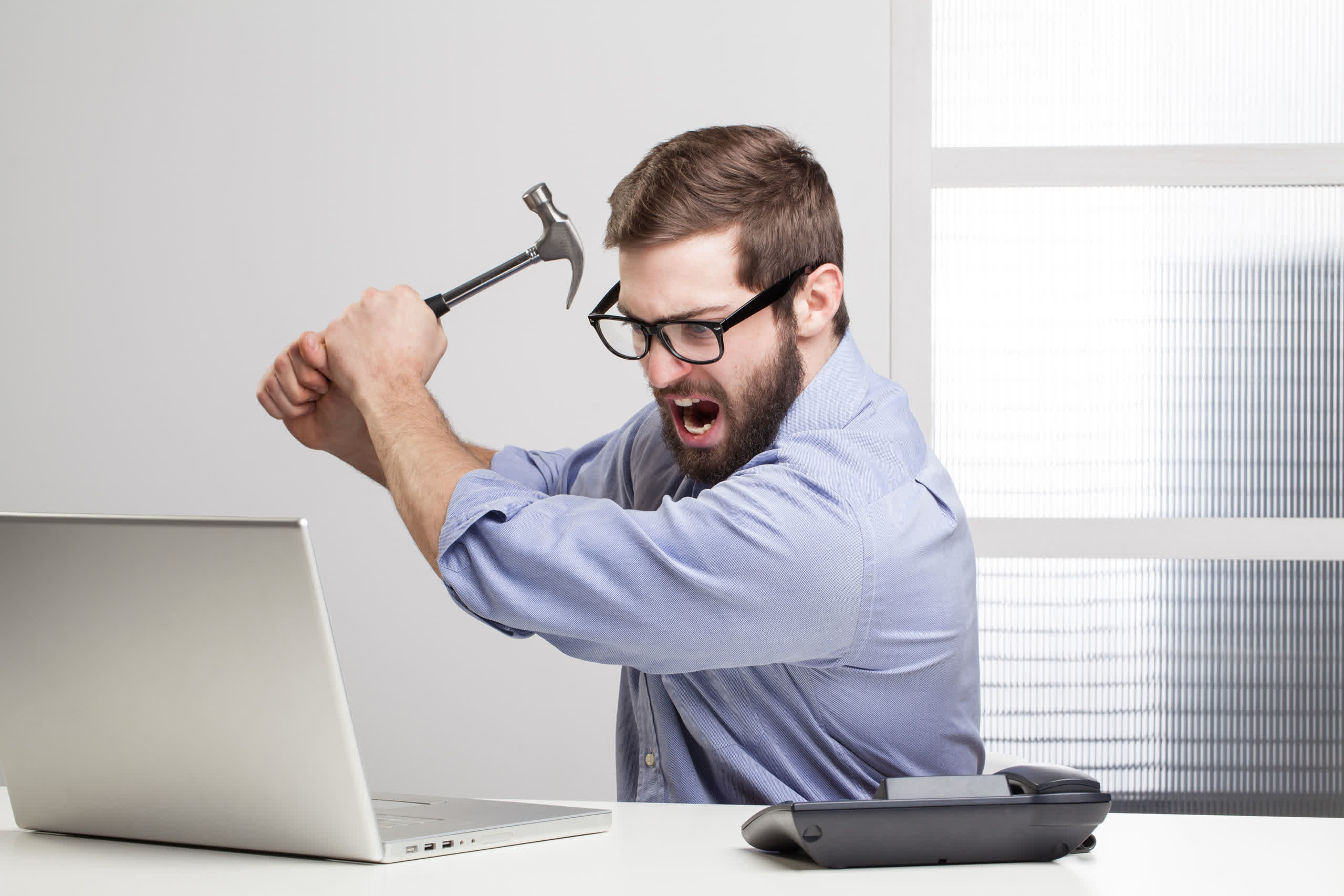
When you're having only 1 of those kind of days. Paradigm: sematadesign
Of course, every bit we just mentioned, it could well be a software trouble, such an update to the operating organization that'south messed upward a configuration somewhere, or even malware that's causing the CPU to work excessively in the groundwork. But if y'all haven't updated anything recently and the computer is well protected, then unexpected changes to performance may exist downward to the main storage bulldoze declining.
Ascertaining whether this is the example or not isn't easy, and nosotros wouldn't recommend replacing a HDD/SSD only because things have gotten sluggish. On the other hand, if the drive is removable, such equally USB memory stick, a rapid drib in speed is a good indicator that it'southward not very healthy.
#four - Bye bye, kick drive
Many of united states of america have experienced this at some point, as this is a mutual state of affairs with owning PCs. One 24-hour interval, everything is all keen, but the very side by side time you fire it up, a dreaded BIOS bulletin appears on your screen: "insert boot deejay and press whatever central,"
Instead of seeing the operating system logo pop into view, y'all're left staring at a bleak statement. In that location may exist other explanations for this. For instance, it can be caused when a new BIOS has only been installed. Just if there's been no changes or updates performed, and so information technology can be a sign that the boot drive has decided to head off to Valhalla. Or at the very to the lowest degree, it'south showing signs of corruption where you may be able to recover your data but it's time you fill-in and get a new bulldoze.
Before booting up fails completely, yous may besides run into your PC crashing during boot randomly. That's a sign that your drive could be developing a trouble.
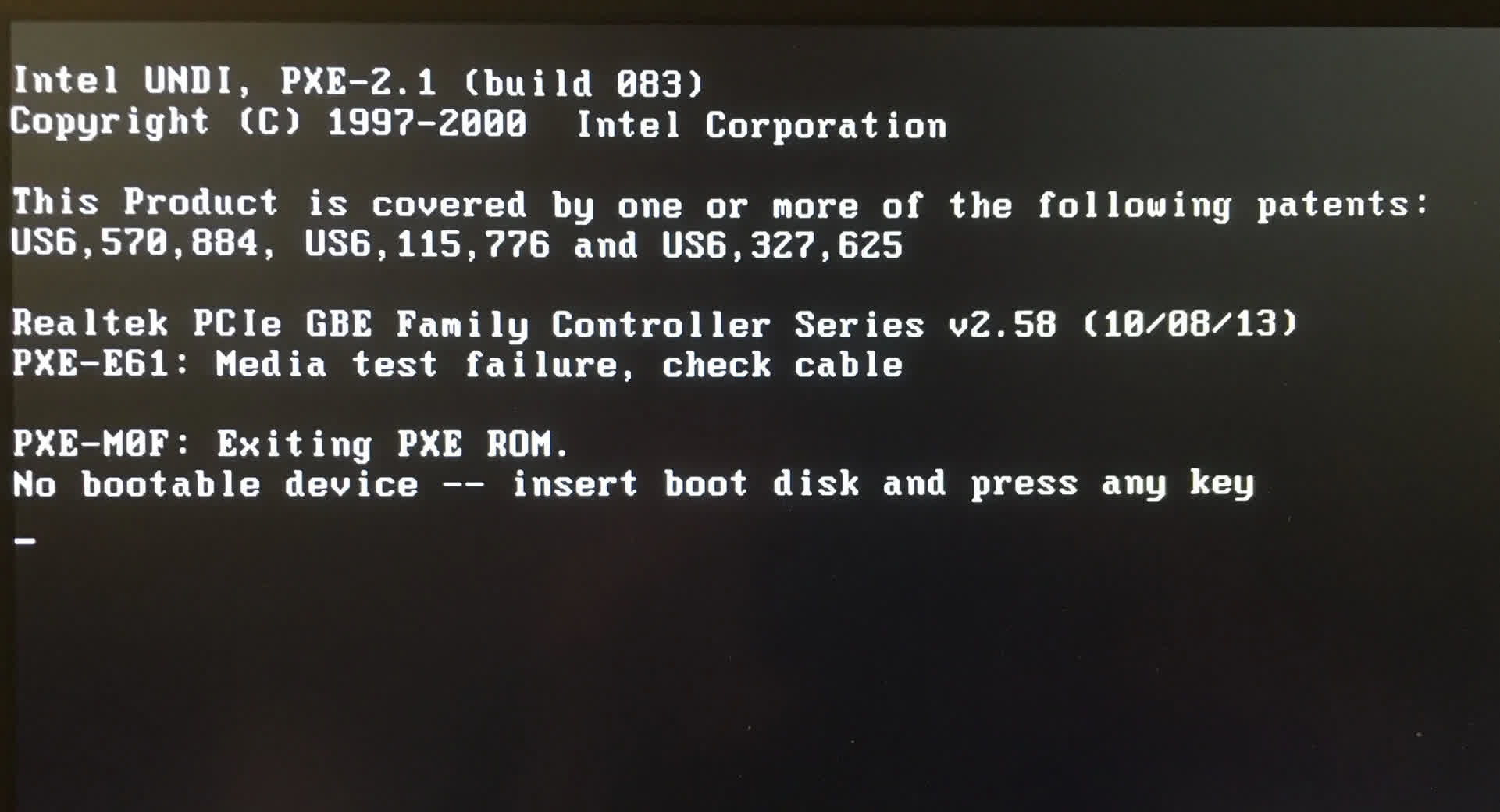
If the case is that office of the data on the drive has become corrupted, 1 recommended step is to remove the HDD/SSD, and put it into some other computer equally a secondary drive. If it's able to examination the bulldoze or read the contents okay, so the bulldoze may be fine to reuse.
At that place's also the possibility, albeit a small ane, that the boot data on the device has been afflicted by malware; in which case, putting it into another car could potentially put that one at risk, as well.
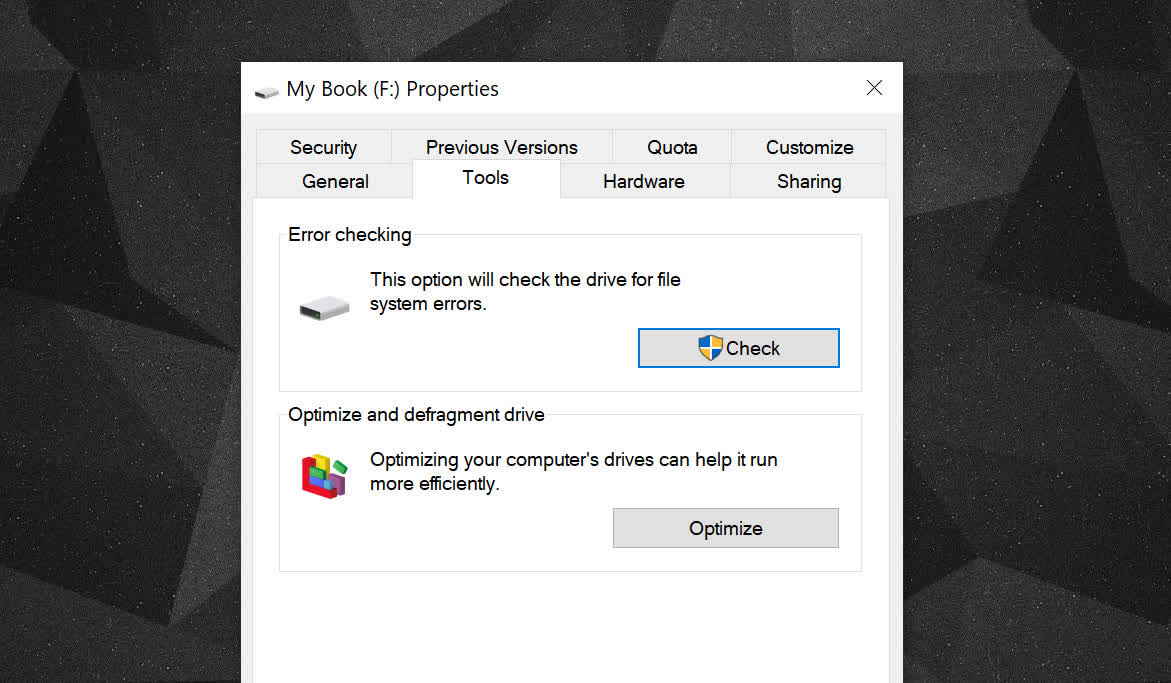
Information technology could exist argued that scanning a HDD or SSD for errors, on another computer, should only be done if you're certain that information technology tin't infect that machine. Checking information technology for malware on the 2nd calculator beforehand is thus recommended.
The unexplainable loss of a boot drive can exist immensely frustrating to resolve and because it's not a rare problem (though it's definitely go ameliorate with SSDs), the all-time way to bargain with it is past taking preventative actions: namely, just take the operating system on i drive, and shop all important files on a dissever i (or always keep a divide fill-in of critical files).
#five - Glitches in the matrix
The last sign we'll talk nigh, for a Dodo-esque storage bulldoze, is perhaps the most indeterminable i. In other words, if you're experiencing these item symptoms, and so it could be the bulldoze that's faulty, but there'southward a myriad of other causes that would need to be eliminated first.
We're referring to those situations where your estimator simply plain ol' bails out -- in the instance of Windows, it'southward the infamous blueish screen of expiry (BSOD). This screen is shown by the operating system when it'south reached a point where it'due south but unable to go along performance properly.
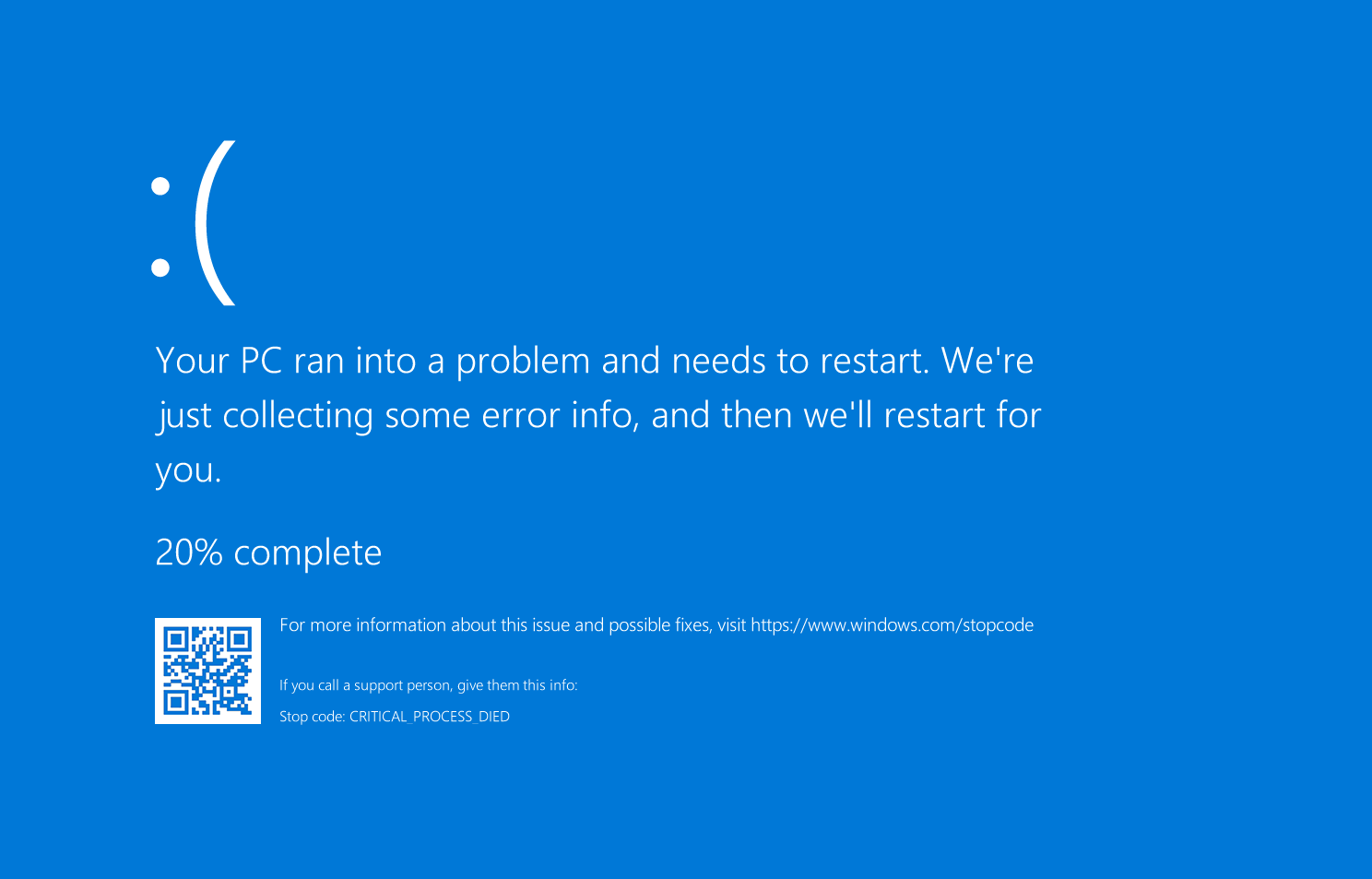
The latest Windows version tries to offer a modest measure of comfort by displaying a QR lawmaking that you can browse with a smartphone. It will then load a webpage that offers guidance every bit to the source of the problem, and how it can be rectified.
Most of the advice involves carrying out software changes, such every bit uninstalling new programs or drivers, as these are the prime number culprits when information technology comes to getting a BSOD. Merely if it was a glitchy storage drive that'southward the real cause, then no amount of software shenanigans volition help.
But similar with disappearing boot drives, unexplained system crashes are rather difficult to analyze -- information technology could well be downwardly to a declining storage drive, but y'all tin simply be sure if you've checked out every other possible crusade.
All good things come to an end
Modern computers really are marvels of applied science -- they're astonishingly circuitous and generally work without issues for long periods of time. All the same, there volition always exist an end to such smooth sailing, because all storage devices have a finite life span.
Whether it's a mechanical or solid state device, the components inside them vesture away and eventually fail. Use the aforementioned HDD or SSD for long enough, and information technology will stop working at some point. Hopefully, you'll experience one of the signs we've covered above, to warn you lot that activeness is required presently.
We'll sign off this commodity (aye, that's a bad pun...) with a piece of communication: it's ever better to be prepared, than be caught out. And by that, nosotros mean you should brand regular backups of your important files, and if they're really of import, backup the backups!
You can easily replace a storage drive -- the aforementioned can't be said well-nigh data.
Read side by side:
- The Best SSDs and PC Storage
- How to Choose an SSD on a Flash Auction
- Network Fastened Storage (NAS): What It Is and Why Yous May Want It
Shopping Shortcuts:
- WD Black SN750 NVMe on Amazon
- Sabrent Rocket 4 Plus NVMe four.0 on Amazon
- Samsung 980 Pro SSD PCIe four.0 on Amazon
- Crucial MX500 SATA on Amazon
- Seagate IronWolf 4TB NAS HDD on Amazon
Source: https://www.techspot.com/news/87694-5-signs-storage-drive-about-fail.html
Posted by: gibsonficepleturem.blogspot.com


0 Response to "5 Signs Your Storage Drive is About to Fail"
Post a Comment